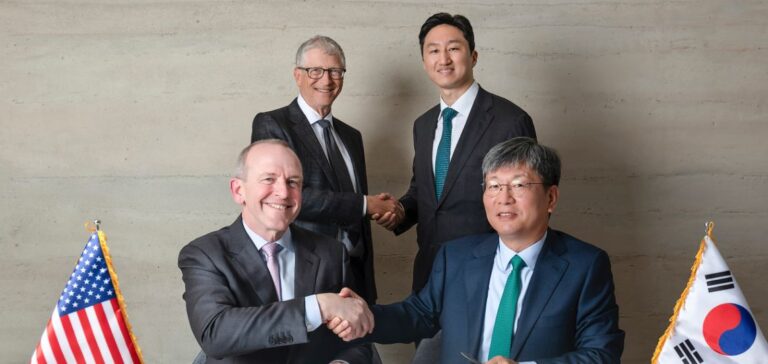HD Hyundai has formalised a strategic agreement with TerraPower to establish large-scale production capacity for Natrium reactors. This partnership is part of an effort to industrialise the small modular reactor (SMR) sector, integrating advanced manufacturing processes to meet serial production requirements.
The Natrium reactor is a fourth-generation sodium-cooled fast reactor. It uses a liquid sodium cooling system to dissipate the heat generated by fast neutron fission. Compared to conventional reactors, it enables a 40% reduction in nuclear waste.
Structuring the supply chain
As part of this agreement, HD Hyundai will develop optimised industrial processes for the manufacturing of key reactor components. The company had already signed a supply contract in December 2024 for the vessel of the first Natrium reactor. This initiative aligns with an industrial scale-up strategy, aiming for serial production that meets market demands.
Industrialisation and deployment outlook
The partnership aims to structure a supply chain capable of supporting the global deployment of Natrium reactors. TerraPower continues the installation of its first reactor and plans a gradual scale-up over the coming decade. The integration of advanced manufacturing processes is expected to optimise costs and standardise production on an industrial scale.
The ambitions of this project align with the ongoing consolidation of the SMR market. The technical and industrial capabilities of the partners must ensure implementation that meets the requirements of future operators.






















